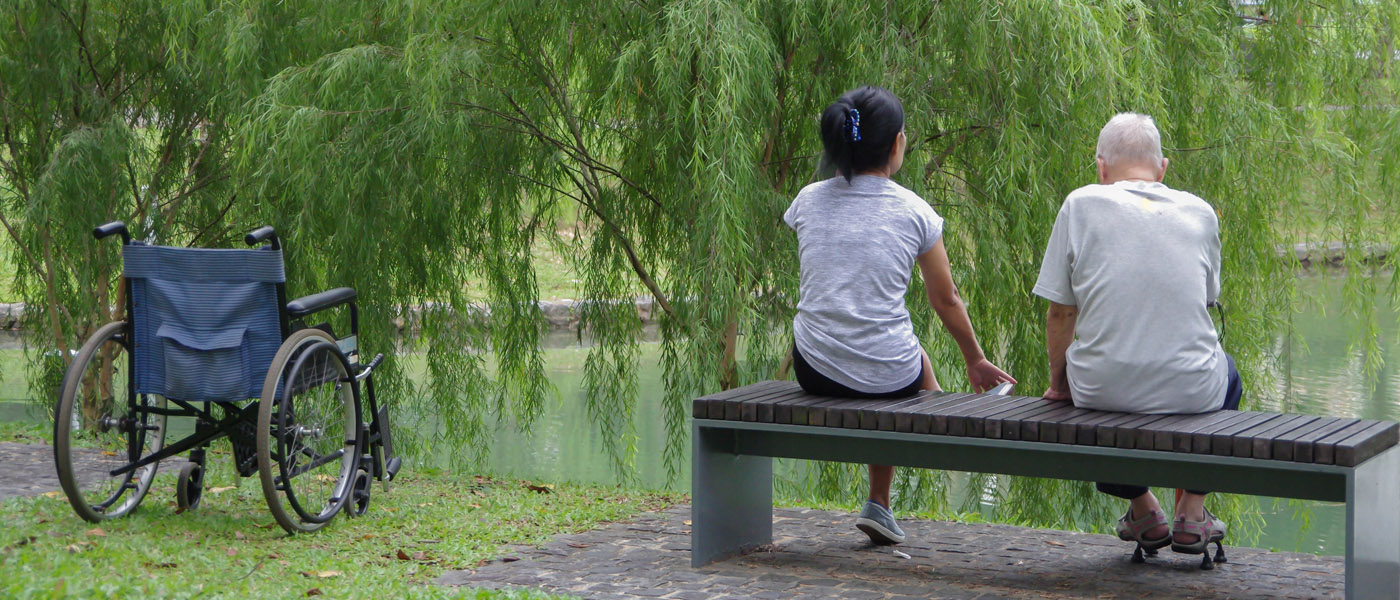Are you an Informal Caregiver?
What is an Informal Caregiver?
When a disease or disability makes it impossible for a person to live on their own, they require round-the-clock assistance for their health and safety. The people that provide this assistance are called caregivers. While some people opt for formal caregivers — trained professionals hired to help with day-to-day assistance — most people cannot afford such care. Most rely on a spouse, partner, family member, or friend to provide informal caregiving. In order to be there in case of emergency day or night, many informal caregivers either move in with their loved one or bring them to their own home.
You Are Not Alone
According to the National Alliance for Caregiving and AARP, in 2015 approximately 43.5 million caregivers have provided unpaid care to an adult or child while about 34.2 million Americans have provided unpaid care to an adult age 50 or older. The value of services provided by informal caregivers is more than $470 billion annually — almost as much as WalMart makes in a year.
Caregiver Stress Syndrome
The terms “caregiver syndrome” or “caregiver stress” refer to the exhaustion, anger, rage or guilt that result from unrelieved caring for a dependent. Illness and injury have a way of making a person feel out of control of a difficult situation. The demands of caring for someone dealing with a serious illness or injury can quickly grow overwhelming. Eventually, some people experience extreme burnout, leaving them unable to care for themselves, let alone another person.
Signs of caregiver stress syndrome include:
- Uncontrollable irritability
- Overreacting
- Fatigue
- Difficulties sleeping
- Depression
- Issues with concentration
- Growing feelings of resentment
- Becoming withdrawn
- Neglecting responsibilities
- Anxiety and panic attacks
- Destructive behaviors
- Poor eating habits
- Loss of interest in leisure activities
- New or worsening health problems
Self-Care for Preventing Burnout
Taking time to care for yourself is the best way to prevent burnout. It may seem selfish to put your needs first when your friend or loved one is sick, but if you work yourself into the most extreme symptoms of caregiver stress syndrome, you won’t be able to help anyone. Prioritizing your health and wellbeing isn’t selfish at all– in fact, it’s necessary for the both of you.
Here are just a few ways caretakers should practice self-care.
Reduce Clutter, Reduce Stress: We can’t always help the ways life stresses us out, but we can control our environment and align it in a way to reduce things we recognize as triggers. If you want to reduce stress in your household, go through room by room and throw out all the excess items and trash. Clutter is a significant source of stress in life. It bombards the senses, distracts, and inhibits mindfulness. Throw out things you don’t use or need — only keep things you can tuck in places out of sight and out of mind.
Ask for Help: Caregivers are just that, giving. But giving people often make the mistake of thinking they have to do everything on their own. Don’t get caught in the thought that you don’t deserve help in areas where you need it. If it costs a little bit of money, it is worth it if it contributes to the preservation of your sanity. Look into services that can provide household help with chores from dusting to dog walking. When you outsource daily chores, use the free time to do something simple for yourself.
Spend Time Outdoors: Being cooped up indoors all the time is incredibly stifling for both the body and mind. Humans need fresh air and sunshine. Just being outside helps to regulate blood pressure, reduce cortisol in the body and clear the mind. Make time in nature a priority for both you and the loved one you are caring for. Reap the physical and mental benefits of the outdoors.
***
When disease or disability leaves a person unable to care for themselves independently, they often turn to a friend or loved one to become an informal caregiver. Caregiving is a noble thing, but it can cause a lot of stress and health problems that accompany stress. That’s why it is so important for these caregivers to practice self-care by doing things such as reducing stress in their life, asking for help and being proactive about spending time outdoors.
This blog post was written by Harry Cline, creator of NewCaregiver.org and author of the upcoming book, The A-Z Home Care Handbook: Health Management How-Tos for Senior Caregivers. As a retired nursing home administrator, father of three, and caregiver to his ninety-year-old uncle, Harry knows how challenging and rewarding caregiving can be. He also understands that caregiving is often overwhelming for those just starting out. He created his website and is writing his new book to offer new caregivers everywhere help and support.
blog Caretaker Prescription Assistance Uncategorized